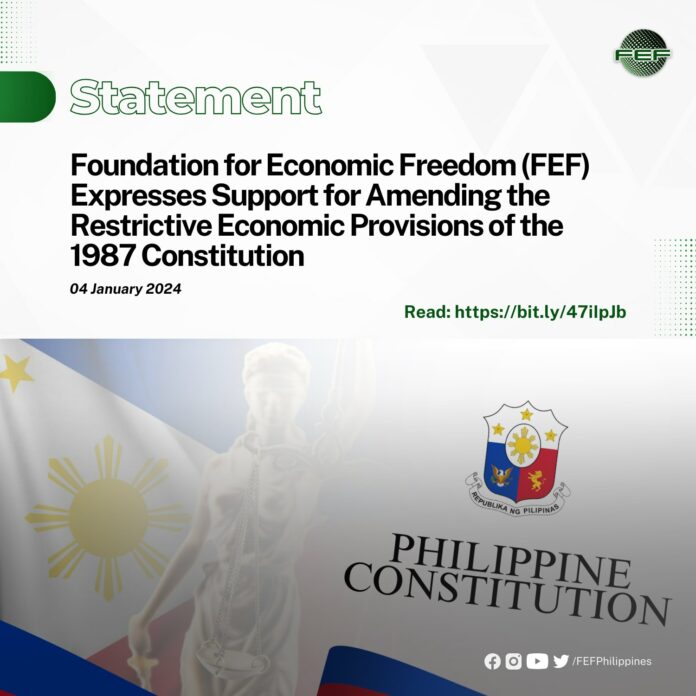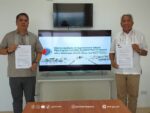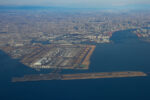Heavyweight advocates and thought leaders at the Foundation for Economic Freedom (FEF) called on government on Thursday to lift decades-old Constitutional prohibitions they assert serve only as binding constraints to the economic growth and development of the country.
“We believe that the removal of restrictive economic provisions sends a clear and compelling message to foreign investors, signaling a warm welcome to investment and business operations in the Philippines. While commendable liberalization laws have been enacted in the previous administration, such as the Amendments to the Public Service Act, the Foreign Investment Act, and the Retail Trade Liberalization Act, the Philippines still lags behind its ASEAN neighbors in foreign direct investment inflows. Data as of 2022 indicates that Indonesia, Vietnam, Malaysia, and Thailand have surpassed the Philippines in attracting foreign direct investment,” the FEF said in a statement.
The advocates at FEF count former Finance Secretary Roberto F. de Ocampo as chairman and luminaries in the fields of finance and economics as Simon Paterno, Calixto Chikiamco, Maria Cecilia Soriano and Gary Teves.
“The existing economic constitutional restrictions limit investments that we need to develop our creative industries,” the group said.
“Likewise, while investments in solar and wind energy have been liberalized, there is still a lot of uncertainty for foreign investors because of the 60/40 rule in investments in natural resources and ownership of land,” they added.
The 60-40 equity rule mandates no more than 40 percent of businesses may be owned by foreign nationals and that 60 percent must be held by Filipinos.
The FEF proposed revisions allowing full foreign ownership under Sections 2, 3, 7, 10, and 11 of Article XII; Section 4 of Article XIV; Section 11 of Article XVI of the Constitution.
It also proposed revising Section 19 of Article II and Section 10 of Article XII to reflect a self-reliant and independent economy “for the benefit of all Filipinos” instead of one “controlled by Filipinos.”
“Removing the restrictive economic provisions would significantly improve the lives of Filipinos by attracting new foreign investments and fostering healthy competition,” the FEF said.
“Any delay in amending these economic provisions would hinder the opportunity for more inclusive growth and development for our people and the country,” the advocates said.
They particularly noted that while liberalization laws have been enacted, the Philippines still lags behind its Southeast Asian neighbors in foreign direct investment inflows.
“Data as of 2022 indicates that Indonesia, Vietnam, Malaysia, and Thailand have surpassed the Philippines in attracting foreign direct investment,” it said.
The latest foreign direct investment numbers show a sharp 42.2 percent dip to only USD420 million in September last year, the lowest in three-and-a-half years based on data at the Bangko Sentral ng Pilipinas.
Earlier, the government amended Republic Act 11659 or the Public Service Act and allowed full foreign ownership of businesses in airports, railways, expressways, and telecommunications and threw away the 40 percent cap.
Amendments have also been made to the Foreign Investment Act and the Retail Trade Liberalization Act to attract more foreign investments and provide less strict requirements for potential foreign investors.
The FEF also urged legislators to remove the remaining restrictions on foreign participation in the rice and corn sector in Republic Act No. 3018 and Presidential Decree No. 194.
The cultivation, milling, storage, transport, export, import and distribution of the grains is reserved only for Filipinos.







